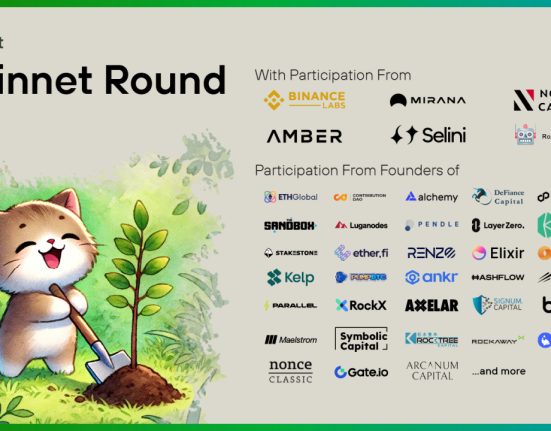Coins are essential to the blockchain technology space because they facilitate transactions, enable decentralized applications, and operate as units of value in online communities. Coins, also sometimes called cryptocurrencies, are digital or virtual money that use cryptographic techniques to restrict the creation of new units, ensure asset transfers, and safeguard financial transactions.
At the core of the blockchain architecture, coins represent fundamental building blocks. They facilitate economic activities, incentivize network participants, and foster innovation in various sectors. Understanding the nature, functionality, and significance of coins is essential. It helps in grasping the intricacies of blockchain technology and its transformative potential across diverse domains.
ORIGINS AND EVOLUTION OF COINS IN BLOCKCHAIN
The genesis of coins in blockchain traces back to the invention of Bitcoin by an anonymous entity known as Satoshi Nakamoto in 2008. Bitcoin, the pioneering cryptocurrency, introduced the concept of a decentralized digital currency. It operates on a peer-to-peer network without the need for intermediaries such as banks or financial institutions.
Bitcoin’s groundbreaking blockchain framework enabled the issuance, transfer, and storage of value in the form of bitcoins, which are units of cryptocurrency. Powered by cryptographic algorithms and distributed consensus mechanisms, Bitcoin established a novel paradigm for financial transactions. It laid the groundwork for the proliferation of alternative cryptocurrencies and blockchain platforms.
After the emergence of Bitcoin, a myriad of cryptocurrencies and blockchain projects emerged, each with distinctive features, consensus mechanisms, and use cases. Ethereum, launched in 2015, revolutionized the landscape by introducing smart contracts. Smart contracts are programmable agreements that execute automatically when predefined conditions are met, with Ether (ETH) as its native cryptocurrency.
Coins in blockchain ecosystems serve multifaceted roles. They encompass mediums of exchange, stores of value, units of account, and governance tokens. Governance tokens confer voting rights and decision- making authority to stakeholders within decentralized networks.
KEY CHARACTERISTICS OF COINS IN BLOCKCHAIN
- Decentralization: Coins in blockchain operate within decentralized networks that rely on distributed ledger technology (DLT) to record and verify transactions across a network of nodes. Decentralization enhances transparency, censorship resistance, and resilience against single points of failure or malicious attacks.
- Digital Scarcity: Many cryptocurrencies, including Bitcoin, are designed with finite or capped supplies to emulate scarcity akin to precious metals like gold. The scarcity of coins contributes to their perceived value and deflationary properties, incentivizing adoption and long-term investment.
- Programmability: Smart contract platforms like Ethereum enable the creation of custom tokens and decentralized applications (DApps). These leverage the programmability of blockchain networks. Coins can embody diverse functionalities. They range from utility tokens, granting access to specific services, to security tokens representing ownership stakes in real-world assets.
- Consensus Mechanisms: Coins in blockchain networks rely on consensus mechanisms, such as proof-of-work (PoW), proof-of-stake (PoS), delegated proof-of-stake (DPoS), and other variants, to validate and confirm transactions while mitigating double-spending and Sybil attacks. Each consensus algorithm entails distinct trade-offs regarding security, scalability, and energy consumption.
- Interoperability: The interoperability of coins facilitates seamless exchange and interoperability across different blockchain platforms and cryptocurrency exchanges. Interoperability protocols and standards enable cross-chain asset transfers, atomic swaps, and liquidity aggregation, fostering liquidity and accessibility within the broader blockchain ecosystem.
USE CASES AND APPLICATIONS OF COINS IN BLOCKCHAIN
- Payments and Remittances: Cryptocurrencies serve as efficient mediums of exchange for facilitating cross-border payments, remittances, and micropayments. They offer minimal transaction fees and settlement times. Coins enable financial inclusion by providing individuals in underserved regions with access to secure and affordable banking services.
- Decentralized Finance (DeFi): Coins underpin the burgeoning DeFi ecosystem, encompassing decentralized lending, borrowing, trading, yield farming, and liquidity provision protocols. DeFi platforms leverage smart contracts and programmable tokens to automate financial services and eliminate intermediaries, thereby democratizing access to financial markets.
- Non-Fungible Tokens (NFTs): Non-fungible tokens represent unique digital assets, such as digital art, collectibles, virtual real estate, and in-game items. They are indivisible and verifiable on blockchain networks. Coins facilitate the creation, transfer, and ownership of NFTs, unlocking new avenues for creators, collectors, and developers to monetize digital content and establish provable ownership rights.
- Tokenization of Assets: Coins enable the tokenization of real-world assets, including equities, real estate, commodities, and intellectual property. They represent fractional ownership interests on blockchain networks. Asset-backed tokens enhance liquidity, reduce barriers to entry, and enable global investment opportunities. They also ensure transparency and compliance with regulatory frameworks.
- Governance and Voting: Coins serve as governance tokens within decentralized autonomous organizations (DAOs) and blockchain protocols. They enable stakeholders to participate in decision-making processes, protocol upgrades, and resource allocation. This is achieved through consensus-based voting mechanisms. Governance tokens empower users to shape the direction and governance of decentralized networks according to their preferences and collective interests.
CHALLENGES AND CONSIDERATIONS
Despite the myriad benefits and transformative potential of coins in blockchain, several challenges and considerations warrant attention:
- Regulatory Uncertainty: The regulatory landscape surrounding cryptocurrencies and blockchain technology remains fragmented and evolving, posing compliance challenges and regulatory risks for market participants and ecosystem stakeholders.
- Scalability and Throughput: Scalability limitations inherent in blockchain networks, such as throughput constraints and transaction processing bottlenecks, impede the widespread adoption and scalability of coins. This applies particularly to mainstream applications and high-volume transactions.
- Security and Privacy: Security vulnerabilities, including smart contract bugs, consensus attacks, and privacy concerns, pose risks to the integrity and confidentiality of transactions on blockchain networks. This necessitates robust security protocols and privacy-enhancing technologies.
- User Experience and Accessibility: The user experience (UX) of blockchain applications and cryptocurrency wallets requires improvement. This enhances usability, accessibility, and user adoption among mainstream audiences lacking technical expertise.
CONCLUSION
Coins represent the cornerstone of blockchain ecosystems, underpinning financial transactions, decentralized applications, and digital economies. Across diverse industries and use cases, they play a crucial role. As blockchain technology evolves and matures, coins are poised to catalyze innovation. They foster economic empowerment and redefine paradigms of finance, governance, and digital ownership globally.
By embracing the principles of decentralization, interoperability, and programmability, blockchain coinshave the potential to democratize access to financial services. They unlock new avenues for valuecreation and empower individuals to participate in the decentralized economy of the future. Asstakeholders navigate the opportunities and challenges inherent in the blockchain space, understandingthe fundamentals and implications of coins is paramount. It helps harness the transformative potentialof this groundbreaking technology.














